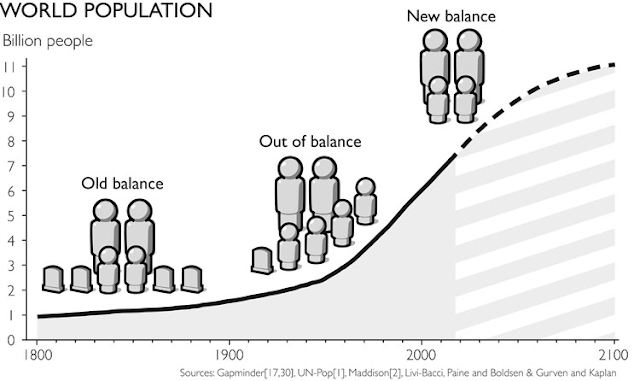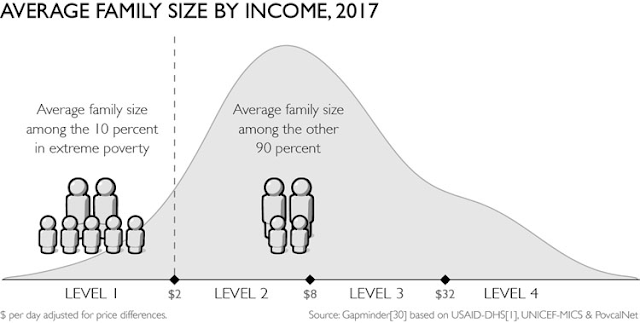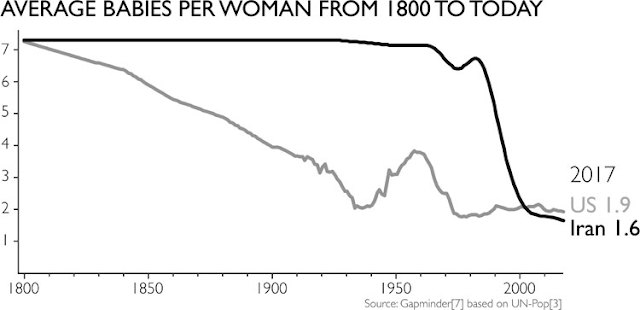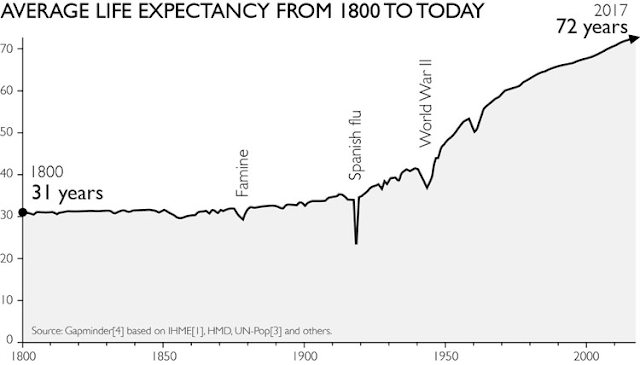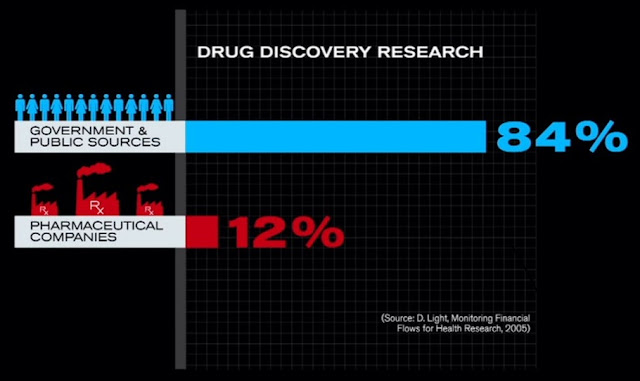War is Peace
Freedom is Slavery
Ignorance is Strength
— George Orwell (1903 – 50), Nineteen Eighty-Four, 1949.
Community
Identity
Stability
William Shakespeare (1564 – 1616):
O brave new world,
That has such people in't!
(Scene 1, Act 5, The Tempest, 1611)
John Steinbeck (1902 – 68):
I'll be ever'where — wherever you look.
Wherever they's a fight so hungry people can eat, I'll be there.
Wherever they's a cop beatin' up guy, I'll be there. …
I'll be in the way guys yell when they're mad …
I'll be in the way kids laugh when they're hungry an' they know supper's ready.
An' when our folks eat the stuff they raise an' live in the houses they build — why, I'll be there.
(The Grapes of Wrath, 1939, Pan, 1975, p 444)
George Orwell (1903 – 50):
[Nineteen Eighty-Four] is NOT intended as an attack on Socialism or on the British Labour Party … but as a show-up of the perverions to which a centralised economy is liable and which have already been partly realised in Communism and Fascism.
I do not believe that the kind of society I describe will necessarily arrive, but … that something resembling it could arrive.
I believe … that totalitarian ideas have taken root in the minds of intellectuals everywhere, and I have tried to draw these ideas out to their logical consequences.
The scene of the book is laid in Britain in order to emphasise(Letter to Francis Henson, 16 June 1949)
- that the English-speaking races are not innately better than anyone else, and
- that totalitarianism, if not fought against, could triumph anywhere.
The English left-wing intelligensia worship Stalin because they have lost their patriotism and their religious belief without losing the need for a god and a fatherland.
I have always held that many of them would transfer their allegiance to Hitler if Germany won.
(Partisan Review, July-August 1943)
As nearly as possible, no nationalist ever thinks, talks or writes about anything except the superiority of his own power.
It is difficult, if not impossible, for any nationalist to conceal his allegiance.
The smallest slur upon his own unit, or any implied praise of a rival organisation, fills him with uneasiness which he only relieve by making some sharp retort. …
One prod to the nerve of nationalism, and(Notes on Nationalism, May 1945)
- the intellectual decencies can vanish,
- the past can be altered, and
- the plainest of facts can be denied.
When nationalism first became a religion, the English looked at the map, and, noticing that their island lay very high in the Northern Hemisphere, evolved the pleasing theory that the further north you live the more virtuous you become.
The histories I was given when I was a little boy generally started off by explaining in the naivest way that a cold climate made people energetic while a hot one made them lazy, and hence the defeat of the Spanish Armada. …
In the mythology of Carlyle, Creasy, etc,This theory was never pushed to its logical end, which would have meant assuming that the finest people in the world were the Eskimos …
- the Northerner ('Teutonic', later 'Nordic') is pictured as a hefty, vigorous chap with blond moustaches and pure morals, while
- the Southerner is sly, cowardly, and licentious.
(The Road to Wigan Pier, 1937)
In theory it is … possible to be an orthodox religious believer without being intellectually crippled in the process; but it is far from easy, and in practice books by orthodox believers usually show the same cramped, blinkered outlook as books by orthodox Stalinists or others who are mentally unfree.
(Poetry London, October-November 1942)
[There] are four great motives for [writing prose:]
All writers are vain, selfish and lazy, and at the very bottom of their motives, there lies a mystery.
- Sheer egoism. …
- Aesthetic enthusiasm. …
- Historical impulse. …
- Political purpose [ie, the desire] to push the world in a certain direction. …
(Why I Write, Gangrel, No 4, Summer 1946)
David Crystal (1941):
Four basic [conversational] maxims have been proposed [by Paul Grice (1913 – 88):](The Cambridge Encyclopedia of Language, Cambridge University Press, 1987, p 117)
- The maxim of quality states that speakers' contributions to a conversation ought to be true.
They should not say what they believe to be false, nor should they say anything for which they lack adequate evidence.- The maxim of quantity states that the contribution should be as informative as is required for the purposes of the conversation.
One should say neither too little nor too much.- The maxim of relevance states that contributions should clearly relate to the purpose of the exchange.
- The maxim of manner states that the contribution should be perspicuous — in particular, that it should be orderly and brief, avoiding obscurity and ambiguity.
George Orwell | Eric Blair (1903 – 50)
[A] Socialist United States of Europe seems to me the only worthwhile political objective today.
Such a federation would contrain about 250 million people, including perhaps half the skilled industrial workers of the world. …
The Russians cannot but be hostile to any European union not under their own control. …
If the United States remains capitalist … it cannot regard a Socialist Europe with a friendly eye. …
Since 1940 Britain has kept its feet against the European dictators at the expense of becoming almost a dependency of the USA. …
Therefore, there is always the danger that the United States will break up any European coalition by drawing Britain out of it. …
[If the Catholic Church] is allowed to survive as a powerful organisation, it will make the establishment of true Socialism impossible, because its influence is, and always must be,
- against freedom of thought and speech,
- against human equality, and
- against any form of society tending to promote earthly happiness.
We are no longer strong enough to stand alone, and if we fail to bring a western European union into being, we shall be obliged, in the long run, to subordinate our policy to that of one Great Power or another.
And in spite of all the fashionable chatter at the moment, everyone knows in his heart that we should choose America [rather than Russia.]
(In Defence of Comrade Zilliacus, 1947)
The struggle of the working class is like the growth of a plant.
The plant is blind and stupid, but it knows enough to keep pushing upwards towards the light, and it will do this in the face of endless discouragements.
What are the workers struggling for?
Simply for the decent life which they are more and more aware is now technically possible. …
All that the working man demands is [the] indispensable minimum without which human life cannot be [lived:]
- enough to eat,
- freedom from the haunting terror of unemployment,
- the knowledge that your children will get a a fair chance,
- a bath once a day,
- clean linen reasonable often,
- a roof that doesn't leak, and
- short enough working hours to leave you with a little energy when the day is done. …
I myself believe, perhaps on insufficient grounds, that the common man will win his fight sooner or later, but I want it to be sooner and not later — some time within the next hundred years, say, and not some time within the next ten thousand years.
(Looking Back on the Spanish War, Autumn 1942)
It would seem … that if the problems of western capitalism are to be solved, it will have to be through a … movement that is genuinely revolutionary, ie willing to make drastic changes and to use violence if necessary, but which does not lose touch, as Communism and Fascism have done, with the essential values of democracy.
Such a thing is by no means unthinkable.
(New English Week, 22 September 1938)
What is quite obviously happening … is the break-up
- of laissez-faire capitalism, and
- of liberal-Christian culture. …
The autonomous individual is going to be stamped out of existence.
(Inside the Whale, New Directions in Prose and Poetry, 1940)
After twenty years of stagnation and unemployment, the entire English Socialist movement was unable to produce a version of Socialism which the mass of the people could even find desirable. …
The suffocating stupidity of left-wing propaganda had frightened away whole classes of necessary people, factory managers, airman, naval officers, farmers, white-collar workers, shopkeepers, policemen. …
Only the intellectuals, the least useful section of the middle class, gravitated towards the movement. …
Now, however, the circumstances have changed, the drowsy [interwar] years have ended. …
We have got to make our words take physical shape, or perish.
We know very well that with its present social structure England cannot survive …
We cannot win the war without introducing Socialism, nor establish Socialism without winning the war.
At such a time it is possible, as it was not in the peaceful years, to be both revolutionary and realistic. …
War is the greatest of all agents of change.
It speeds up all processes, wipes out minor distinctions, brings realities to the surface.
Above all, war brings it home to the individual that he is not altogether an individual.
It is only because they are aware of this that men will die on the field of battle. …
If it can be made clear that defeating Hitler means wiping out class privilege, the great mass of [middle class people] will probably be on our side.
These people are quite indispensable, because they include most of the technical experts. …
[And, while it] is no use imagining that one can make fundamental changes without causing a split in the nation; but the treacherous minority will be far smaller in time of war than it would be at any other time. …
The inefficiency of private capitalism has been proved all over Europe. …
[I have three suggestions regarding] England's internal policy …
- Nationalization of land, mines, railways, banks and major industries.
- Limitation of incomes, on such a scale that the highest tax-free income in Britain does not exceed the lowest by more than ten to one.
- Reform of the educational system along democratic lines.
[The one] thing that has always shown that the English ruling class are morally fairly sound, is that in time of war they are ready enough to get themselves killed. …
That could not happen if these people were the cynical scoundrels that they are sometimes declared to be. …
What is to be expected of them is not treachery or physical cowardice, but
- stupidity,
- unconscious sabotage, [and]
- an infallible instinct for doing the wrong thing. …
Only when their money and power are gone will the younger among them begin to grasp what century they are living in. …
Right at the end of August 1939 the British dealers were tumbling over one another in their eagerness to sell Germany tin, rubber, copper and shellac — and this in the clear, certain knowledge that war was going to break out in a week or two.
It was about as sensible as selling somebody a razor to cut you own throat with.
But it was "good business". …
[The] rule of money sees to it that we shall be governed largely by the old — that is, by people utterly unable to grasp what age they are living in …
What is wanted is a conscious open revolt by ordinary people against:
- inefficiency,
- class privilege and
- the rule of the old. …
By revolution we become more ourselves, not less.
There is no question of:
- stopping short,
- striking a compromise,
- salvaging "democracy", [or]
- standing still.
- We must add to our heritage or lose it,
- we must grow greater or grow less,
- we must go forward or [go] backward. …
(The Lion and the Unicorn: Socialism and the English Genius, The Searchlight Books, Vol I, Fyel & Orwell, Editors, Secker & Warburg, 19 February 1941)
One probable source of trouble in the near future is Palestine. …
As to the longer term aspects of international policy … Britain, not strong enough to complete single-handed with Russia or America, has three alternatives.
- One is to carry on as present … holding the Empire together as well as possible;
- another is to move definitely into the orbit of the USA; and
- the other is to liberate India, cut the links with the Dominions, and form a solid bloc with the western European states …
People who write [poorly] usually have a general emotional meaning — they dislike one thing and want to express solidarity with another — but they are not interested in the detail of what they are saying.
A scrupulous writer, in every sentence that he writes, will ask himself at least four questions, thus:
- What am I trying to say?
- What words will express it?
- What image or idiom will make it clearer?
- Is this image fresh enough to have an effect?
- Could I put it more shortly?
- Have I said anything that is avoidably ugly? …
- Never use a metaphor, simile, or other figure of speech which you are used to seeing in print.
- Never use a long word where a short one will do.
- If it is possible to cut a word out, always cut it out.
- Never use the passive where you can use the active.
- Never use a foreign phrase, a scientific word, or a jargon word if you can think of an everyday English equivalent.
- Break any of these rules sooner than say anything outright barbarous. …
(Politics and the English Language, 1946)
- Don’t Panic – The Facts About Population, Gapminder, 2013.
Hans Rosling (1948 – 2017). - Increased educational attainment and its effect on child mortality in 175 countries between 1970 and 2009: a systematic analysis, The Lancet, September 2010.
Emmanuel Gakidou, Krycia Cowling, Rafael Lozano & Christopher Murray. - Women's Education and Fertility Rates in Developing Countries, With Special Reference to Bangladesh, Eubios Journal of Asian and International Bioethics, 12:138-143, 2002.
Wardatul Akmam.
Contents
Ministry of Love
Ministry of Peace
Ministry of Truth
Ministry of Plenty
Global Civilization
Values and Virtues
Categories and Dimensions
Population
Energy
Food
Health
Michael Weber:
[The fracking induced] earthquakes became so frequent [that,] along with other concerns about the rise of shale production, … the citizens of Denton, Texas, a conservative city that is supportive of the oil and gas industry, overwhelmingly passed a referendum to ban fracking in the city in fall 2014.
In response, in 2015 the Texas legislature, backed with a lot of campaign donations from the oil and gas industry, changed the laws to prohibit cities from passing such bans.
(Thirst For Power, YUP, 216, p 85)
David King (1939):
The potential profitability of moving to a green economy cannot be stressed enough, but it does need a price on the emission of GHGs to stimulate action in the marketplace.
(International climate change negotiations: Key lessons and next steps, p 41)
Tim Jackson (1957):
[Investments] will need to focus on resource productivity, renewable energy, clean technology, green business, climate adaptation and ecosystem maintenance and protection.
(Prosperity Without Growth, p 82)
Daniel Clery:
A 1-GW coal-fired power station requires 10,000 tonnes of coal — 100 rail wagon loads — every day.
By contrast, a fusion power plant with a similar output would have a daily consumption of just 1 kilogram of deuterium-tritium fuel.
The lithium from a single laptop battery and the deuterium from 45 litres of water could generate enough electricity using fusion to supply an average UK consumer’s energy needs for thirty years.
(A Piece of the Sun, Duckworth Overlook, 2004, p 20)
Solar Lights
- Solar lanterns replace kerosene killers in Africa, Science Show, ABC Radio National, 6 April 2013.
Jeremy Leggett: Solar Aid, UK. - Electrifying Africa: Beyond the Grid, BBC Radio 4.
- 100 Solar-powered lamp and charger, A History of the World in 100 Objects, BBC Radio 4, 6 March 2013.
Food
Fighting the GM Food Scare
Around 70% of processed foods in the US contain genetically modified ingredients.
The [AAAS, the WHO] and the exceptionally vigilant European Union agree that GMOs are just as safe as other foods.
Compared with conventional breeding techniques — which swap giant chunks of DNA between one plant and another — genetic engineering is far … less likely to produce an unexpected result.
The US [FDA] has tested all GMOs on the market to determine if they are toxic or allergenic.
They are not. …
Because conventional crops often require more water and pesticides that GMOs do, the former are usually more expensive. …
[A] seven-year study of Indian farmers show[ed] that those growing a genetically modified crop increased their yield per acre by 24% and boosted profits by 50%.
These farmers were able to buy more food — and food of greater nutritional value — for their families.
[Vitamin] A deficiency … blinds as many as 500,000 children worldwide every year and kills half of them …
[Researchers] have engineered Golden Rice, which produces beta-carotene, a precursor of vitamin A.
Approximately three quarters of a cup of Golden Rice provides the recommended daily amount of vitamin A [and] several tests have concluded that the product is safe.
Yet Greenpeace and other anti-GMO organizations have used misinformation and hysteria to delay [its introduction in] the Philippines, India and China. …
[A] variety of cassava — [the] staple food for 600 million people — [has been developed which has] 30 times the usual amount of beta-carotene … four times as much iron [and] higher levels of protein and zinc.
[Furthermore, a variety of corn has been created] with 169-fold the typical amount of beta-carotene, six times as much vitamin C and double the folate.
(The Editors, Science Agenda, Scientific American, September 2013, p 6)
Are Engineered Foods Evil?
GM crops … could produce higher yields, grow in dry and salty land, withstand high and low temperatures, and tolerate insects, disease and herbicides. …
Eight EU nations have banned GM crops outright. …
In Africa … several nations have refused to import GM foods in spite of their lower costs (the result of higher yields and a reduced need for water and pesticides).
Kenya has banned them altogether amid widespread malnutrition.
No country has definite plants to grow Golden Rice … even though vitamin A deficiency causes more than one million deaths annually and half a million cases of irreversible blindness in the developing world. …
[The] US, Canada, Brazil and Argentina … grow 90% of the planet's GM crops. …
[Even so,] at least 20 [US] states are considering GM-labeling bills. …
(p 72)
The European Commission has funded 130 research projects, carried out by more than 500 independent teams, on the safety of GM crops.
None … found any special risks from GM crops. …
The American Association for the Advancement of Science, the American Medical Association and the the National Academy of Sciences have all unreservedly backed GM crops.
The US Food and Drug Administration, along with its counterparts in several other countries, has repeatedly reviewed large bodies of research and concluded the GM crops pose no unique health threats.
Dozens of review studies carried out by academic researchers have backed that view.
(David Freedman, p 74)
Would you like to know more?
Hans Rosling (1948 – 2017):
The United States spends more than twice as much per capita on health care as other [comparable] countries … and for that money its citizens can expect lives that are 3 years shorter.
The United States spends more per capita on health care than any other country in the world, but 39 countries have longer life expectancies.
(Han Rosling, Ola Rosling & Anna Rosling Rönnlund, Factfulness, Flatiron, 2018)
John van Tiggelen:
In 1986 [Aurukun's aldermen] officially opened their gift to the community: [a] beer canteen.
By the end of that year … every single man in his twenties, all but a couple of men in their thirties, and a third of women were alcoholics.
These were the community's parents.
The rate of domestic violence, including homicide, leapt to the highest in Australia.
Those children of 1991 are today's parents. …
[It's] unlikely the tavern will close.
That would cause the riot to end all riots.
(After Sorry, Good Weekend, 15 March 2008)
Global Health Risks
The leading global risks for mortality in the world are:
- high blood pressure (responsible for 13% of deaths globally),
- tobacco use (9%),
- high blood glucose (6%),
- physical inactivity (6%), and
- overweight and obesity (5%).
They affect countries across all income groups: high, middle and low.
The leading global risks for burden of disease as measured in disability-adjusted life years (DALYs) are:
- underweight (6% of global DALYs) …
- unsafe sex (5%) …
- alcohol use (5%), and
- unsafe water, sanitation and hygiene (4%).
The fourth risk — alcohol use — shows a unique geographic and sex pattern, with its burden highest for men in Africa, in middle-income countries in the Americas and in some high-income countries. …
Five leading risk factors identified in this report (childhood underweight, unsafe sex, alcohol use, unsafe water and sanitation, and high blood pressure) are responsible for one quarter of all deaths in the world, and one fifth of all DALYs.
Reducing exposure to these risk factors would increase global life expectancy by nearly 5 years.
Eight risk factors (alcohol use, tobacco use, high blood pressure, high body mass index, high cholesterol, high blood glucose, low fruit and vegetable intake, and physical inactivity) account for 61% of cardiovascular deaths.
Combined, these same risk factors account for over three quarters of ischaemic heart disease: the leading cause of death worldwide. Although these major risk factors are usually associated with high-income countries, over 84% of the total global burden of disease they cause occurs in low- and middle-income countries.
Reducing exposure to these eight risk factors would increase global life expectancy by almost 5 years.
A total of 10.4 million children died in 2004, mostly in low- and middle-income countries.
An estimated 39% of these deaths (4.1 million) were caused by:
- micronutrient deficiencies,
- underweight,
- suboptimal breastfeeding and
- preventable environmental risks.
Nine environmental and behavioural risks, together with seven infectious causes, are responsible for 45% of cancer deaths worldwide.
[Tobacco] smoking alone causes 71% of lung cancer deaths worldwide.
Tobacco accounted for 18% of deaths in high-income countries.
(World Health Organization, Mortality and burden of disease attributable to selected major risks, Geneva, 2009, p v)
Dylan Gray:
In the years after anti-retroviral therapy was proven effective … it is estimated that 10 million people or more in the global South died of AIDS because western drug companies and governments denied them access to affordable and available medicine. …
The WHO estimates at least 18 million people die each year of treatable and preventable diseases, mainly because they lack access to medicine.
(Fire in the Blood, 2013)
The Deregulation of the Pharmaceutical Industry
John Rasko [Professor of Medicine, Sydney University]:
What Trump told CEOs in January is that he wants to eliminate three quarters of all the FDA regulations which ensure the combination of safety and effectiveness. …
They want to undo regulations that require companies to show whether a medical product actually works before it was sold. …
[It was Milton Friedman] who posited that the market is its own brain. …
[That the] market has a way of judging whether a drug is effective, and the test is if it's sold.
So if a drug's sold successfully on the market … it must be good.
[In fact, in the early 1960s, when the FDA first began] to judge both safety and effectiveness … a thousand drugs were … taken off the register because they [proved to be ineffective;] there was no correlation between whether a drug had been selling and whether or not it was effective [—] it was all about marketing …
(Doctors concerned over Trump pharmaceutical plan, Breakfast, ABC Radio National, 9 March 2017)
Frederic Mishkin (1951) [Former Federal Reserve Governor]:
[The] financial system [is] the brain of the economy …
It acts as a coordinating mechanism that allocates capital, the lifeblood of economic activity, to its most productive uses by businesses and households.
If capital goes to the wrong uses or does not flow at all, the economy will operate inefficiently, and ultimately economic growth will be low. …
(Weissman Center Distinguished Lecture, Baruch College, New York, 12 October 2006)
Thomas Piketty (1971):
[Including] the cost of private insurance, the US health care system is by far the most expensive in the world (nearly 20% of national income, compared with 10-12% in Europe), even though a large part of the population is not covered and health indicators are not as good as in Europe.
(Capital in the Twenty-First Century, 2014, p 629, Note 13)
Carol Tavris & Elliot Aronson:
Throughout the 1980s, the ideological climate shifted from one in which science was valued for its own sake, or for the public interest, to one in which science was valued for the profits it could generate in the private interest.
- Major changes in tax and patent laws were enacted;
- federal funding of research declined sharply; and
- tax benefits created a steep rise in funding from industry.
The pharmaceutical industry was deregulated, and within a decade it had become one of the most profitable businesses in the United States. …
[As a result, more] than three-fourths of all drugs approved between 1989 and 2000 were no more than minor improvements over existing medications, cost nearly twice as much, and had higher risks.
By 1999, seven major drugs, including Rezulin and Lotronex, had been removed from the market for safety reasons.
None had been necessary to save lives (one was for heartburn, one a diet pill, one a painkiller, one an antibiotic) and none was better than older, safer drugs.
Yet these seven drugs were responsible for 1,002 deaths and thousands of troubling complications.
(pp 47-8)
Drug companies [have progressively] increased spending on marketing to physicians, from $12.1 billion in 1999 to $22 billion in 2013. …
[Paradoxically, evidence shows that] physicians are influenced more by small gifts than by big ones.
(Mistakes Were Made (But Not By Me), 2000, p 52)
Derek Muller (1982):
In 1994 a new US law is passed, forbidding the testing of supplements for safety or effectiveness before sale. …
In 2015, the US Poisons Center reported over 3,000 calls concerning children under six who had taken too much Vitamin D.
(Vitamania, SBS, 2018)
A Cure in Search of a Disease
Plasma and tissue concentrations of vitamin C are tightly controlled in humans.
- At daily intakes of 100 mg or higher, cells appear to be saturated, and
- at intakes of at least 200 mg, plasma concentrations increase only marginally. …
Consuming five varied servings of fruits and vegetables a day can provide more than 200 mg of vitamin C. …
Overall, the evidence to date suggests that regular intakes of vitamin C at doses of at least 200 mg/day do not reduce the incidence of the common cold in the general population, but such intakes might be helpful in:
- people exposed to extreme physical exercise or cold environments, and
- those with marginal vitamin C status, such as the elderly and chronic smoker.
- shorten the duration of the common cold and
- ameliorate symptom severity
However, taking vitamin C after the onset of cold symptoms does not appear to be beneficial. …
In the Women’s Angiographic Vitamin and Estrogen (WAVE) study, involving 423 postmenopausal women with at least one coronary stenosis of 15%–75%, supplements of 500 mg vitamin C plus 400 IU vitamin E twice per day not only provided no cardiovascular benefit, but significantly increased all-cause mortality compared with placebo. …
In postmenopausal women with diabetes who participated in the Iowa Women’s Health Study, supplemental (but not dietary) vitamin C intake (at least 300 mg/day) was significantly associated with an increased risk of cardiovascular disease mortality.
The mechanism for this effect, if real, is not clear and this finding is from a subgroup of patients in an epidemiological study.
No such association has been observed in any other epidemiological study, so the significance of this finding is uncertain. …
Although the Linxian trial data suggest a possible benefit [— reduced the risk of cerebrovascular deaths by 8% —] overall, the findings from most intervention trials do not provide convincing evidence that vitamin C supplements:
- provide protection against cardiovascular disease, or
- reduce its morbidity or mortality. …
In the [Age-Related Eye Disease Study] study, older individuals who received supplements of 500 mg vitamin C, 400 IU vitamin E, and 15 mg beta-carotene for an average of 6.3 years did not have a significantly lower risk
- of developing cataracts or
- of cataract progression
[Currently] available evidence does not indicate that vitamin C, taken alone or with other antioxidants, affects the risk of developing [age-related macular degeneration], although some evidence indicates that the AREDS formulations might slow AMD progression in people at high risk of developing advanced AMD. …
… IV administration can produce plasma concentrations as high as 26,000 micromol/L.
Concentrations of this magnitude are selectively cytotoxic to tumor cells in vitro.
Research in mice suggests that pharmacologic doses of IV vitamin C might show promise in treating otherwise difficult-to-treat tumors.
A high concentration of vitamin C may:
- act as a pro-oxidant and
- generate hydrogen peroxide that has selective toxicity toward cancer cells. …
However, other studies have not shown:
- increased oxidative damage or
- increased cancer risk with high intakes of vitamin C. …
(Vitamin C: Fact Sheet for Health Professionals, NIH Office of Dietary Supplements, 27 February 2020, emphasis added)




